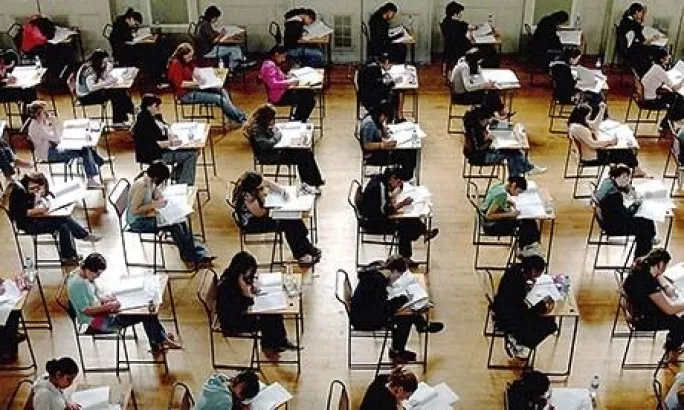Nearly 250,000 fewer children are being taught in secondary schools that fail to meet government floor targets, new figures show.
The number of schools that did not meet the target for secondaries has more than halved since 2010, according to official data.
But there are still just over 150 schools that are considered to be underperforming, collectively educating almost 120,000 students.
At these schools, less than 40 per cent of their pupils are gaining at least five GCSEs at grade C or higher, including English and maths, and students are not making good enough progress in these two core subjects.
In total, about 117,000 youngsters are being educated in the 154 schools that are not reaching the government’s 40 per cent GCSE benchmark - down 50,000 from 2012 and down 244,000 from 2010.
The new league tables are based on data provided by the Department for Education (DfE) and show how every school and college in England performed at GCSE, A level and other academic and vocational qualifications in 2013.
The latest tables also include figures on the number of pupils achieving the government’s flagship English Baccalaureate (EBac) measure.
To gain the EBac, pupils must score at least a C at GCSE in English, maths, science, history or geography and a foreign language.
A DfE analysis of the data found that this year 202,000 pupils were entered for the EBac, compared with 130,000 in 2012.
The latest data also show the proportion of pupils at each school or college that gain top grades at A level in the so-called “facilitating” subjects.
These are subjects that are preferred, or required more often, by Russell Group universities, which are considered among the best institutions in the UK.
An analysis of the statistics suggests that at around 420 schools and colleges, no A-level student scored at least two A grades and a B in these subjects.
Education secretary Michael Gove said that the figures were “a credit to the professionalism and hard work of teachers”.
Despite concerns from heads that the high-stakes accountability system and performance tables could actually be damaging to education, experts welcomed their publication.
Simon Burgess, director of the Centre for Market and Public Organisation and professor of economics at University of Bristol said: “Performance tables are an important part of the school accountability system in England.
“Our research has shown that league tables play an important role in school standards. Removing league tables reduces average school performance and raises inequality in attainment. ”
For the first time, the DfE’s data give separate results for academic and vocational qualifications.
The move allows parents to see a school or college’s performance in each type of qualification and ministers have insisted it will help families to choose where to send their child.




